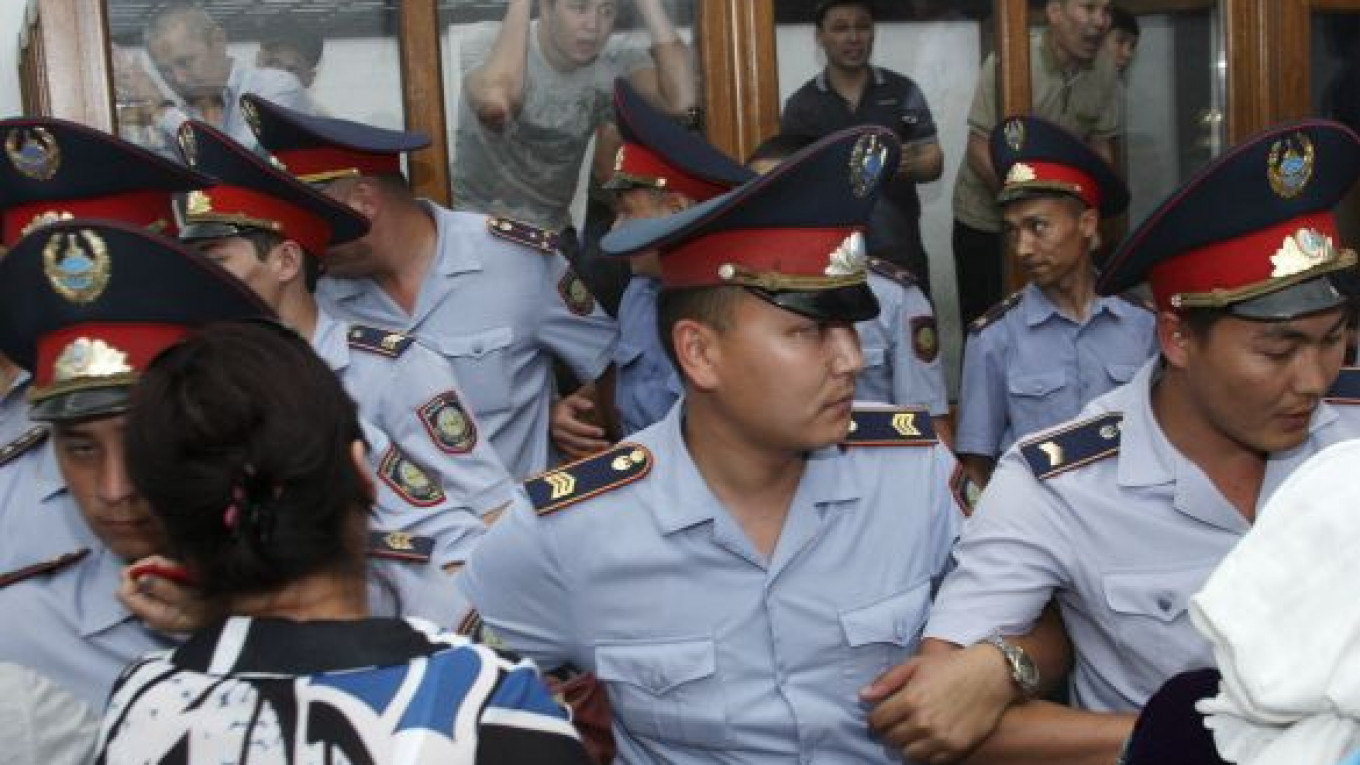AKTAU, Kazakhstan — Thirteen people were jailed Monday for rioting in a Kazakh oil town, prompting courtroom scuffles between relatives and police at the end of a 10-week trial that followed deadly labor unrest in the country.
Twenty-four of the 37 defendants accused of rioting in the town of Zhanaozen last December were freed. Three were acquitted and the remainder amnestied or given suspended sentences.
The violence, in which at least 14 people were killed, shattered Kazakhstan's image of stability and posed the most serious challenge to President Nursultan Nazarbayev in his more than two decades in power.
Relatives of the 37 defendants crammed into a sweltering courtroom inside a converted youth center to hear the verdicts. Sixteen defendants were given two-year suspended terms, while 12 were jailed for between three and six years.
Roza Tuletayeva, one of two women on trial, received the longest prison term, seven years.
After the last sentences were passed, a crowd of female relatives, many of them wailing, tried to break through a police cordon to reach the glass box where the accused were held. Some of the guilty pounded on the glass from within.
"Where's the truth? Where's the justice? The authorities have led us all to this tragedy," an elderly woman screamed.
Many residents of Mangistau, an oil-producing region on the Caspian shore, say Kazakh authorities failed to address the grievances of oil workers, who had demanded higher salaries.
"My son was in the square because he wanted to make sure his children did not go hungry," Gulnar Karakulova, 57, said before her son was handed a three-year jail sentence. "He did not take part in any disorder."
Kazakh authorities say police resorted to lethal force only after being attacked by violent protesters. Six policemen, tried separately, were jailed last month for abusing their power.
A Message from The Moscow Times:
Dear readers,
We are facing unprecedented challenges. Russia's Prosecutor General's Office has designated The Moscow Times as an "undesirable" organization, criminalizing our work and putting our staff at risk of prosecution. This follows our earlier unjust labeling as a "foreign agent."
These actions are direct attempts to silence independent journalism in Russia. The authorities claim our work "discredits the decisions of the Russian leadership." We see things differently: we strive to provide accurate, unbiased reporting on Russia.
We, the journalists of The Moscow Times, refuse to be silenced. But to continue our work, we need your help.
Your support, no matter how small, makes a world of difference. If you can, please support us monthly starting from just $2. It's quick to set up, and every contribution makes a significant impact.
By supporting The Moscow Times, you're defending open, independent journalism in the face of repression. Thank you for standing with us.
Remind me later.






